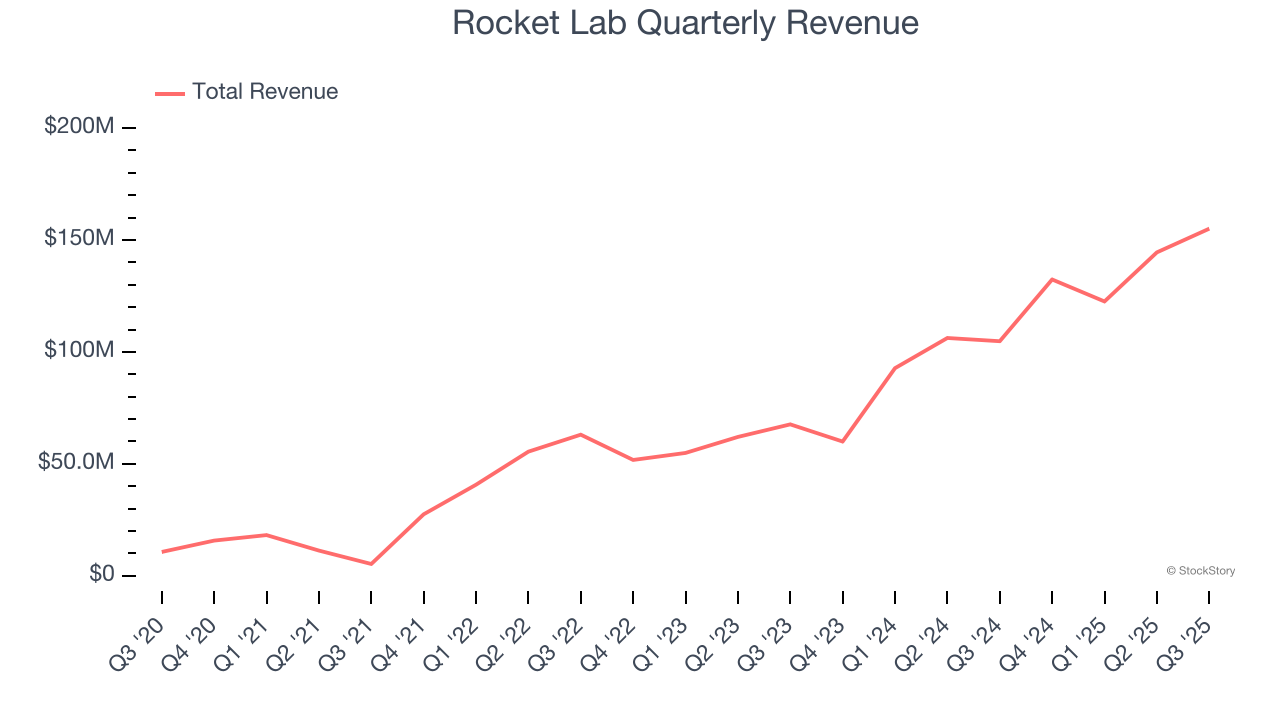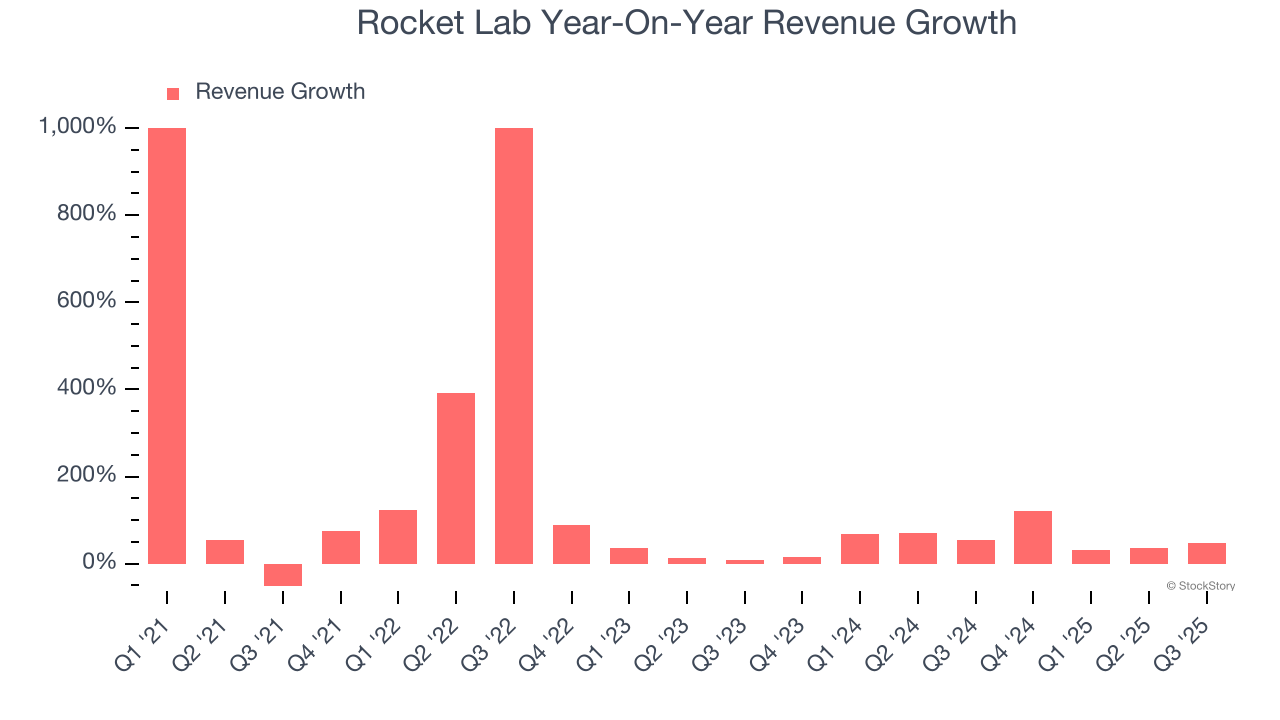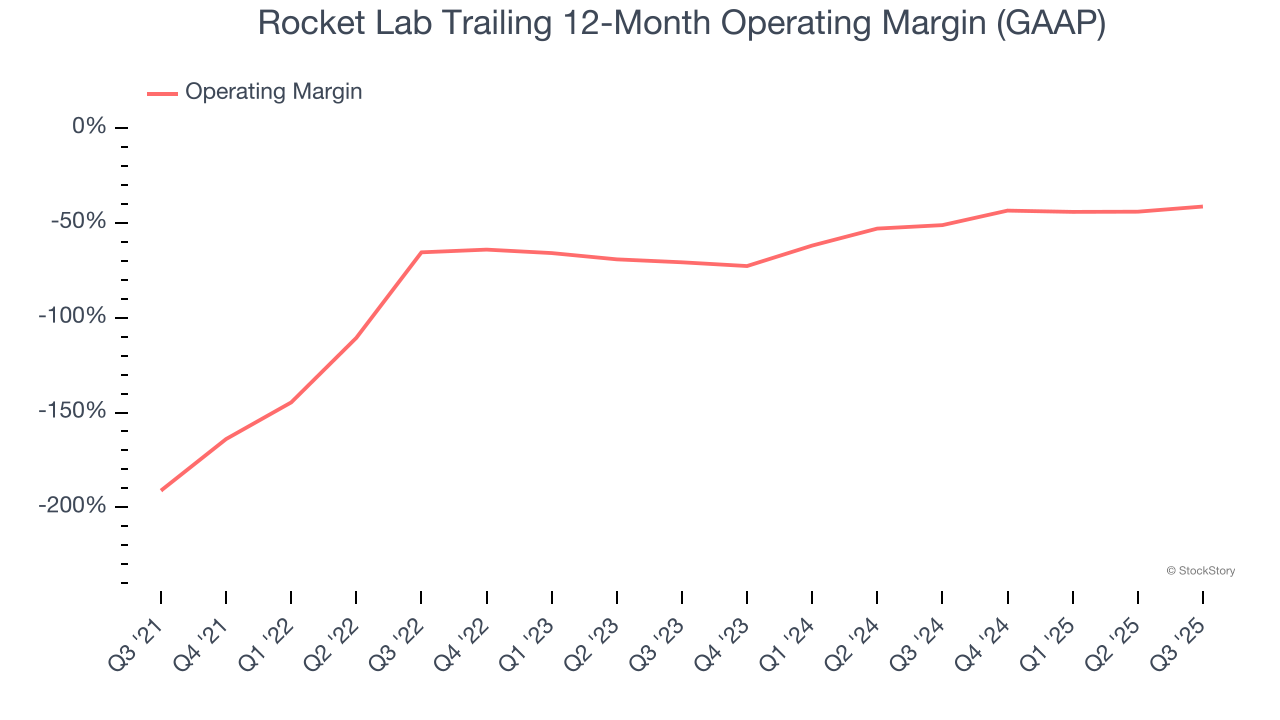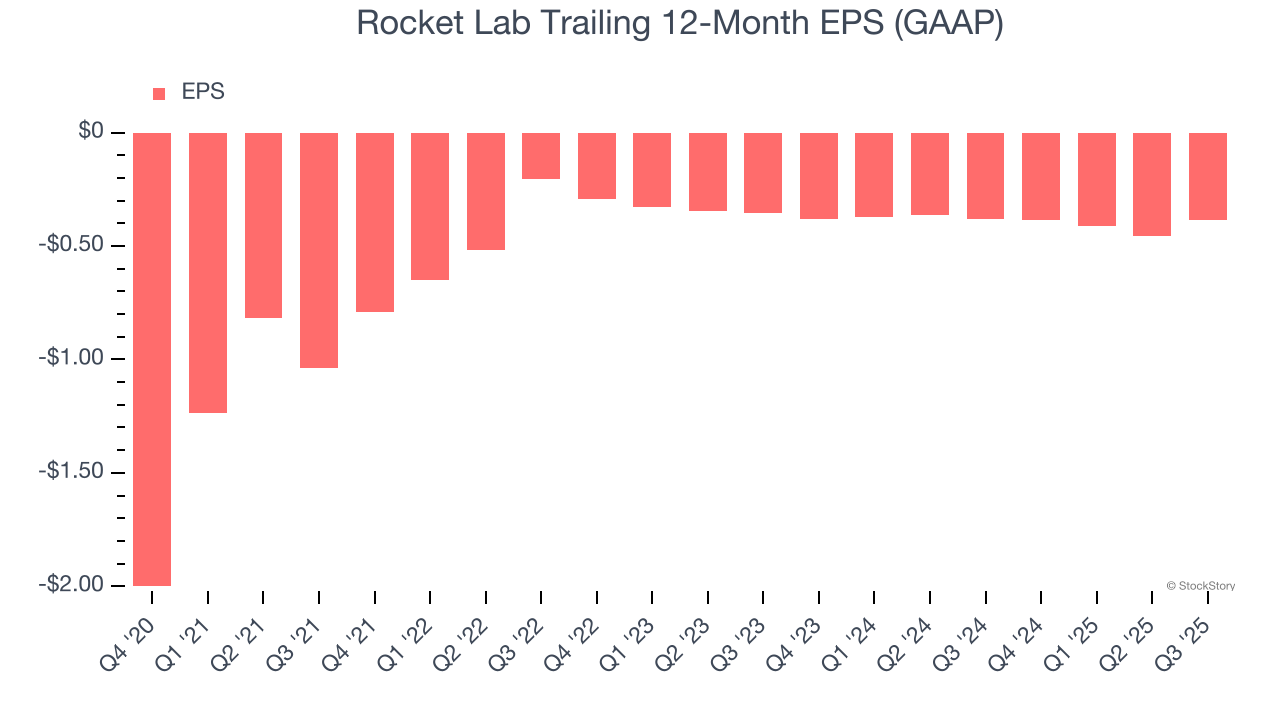
Aerospace and defense company Rocket Lab (NASDAQ:RKLB) reported Q3 CY2025 results beating Wall Street’s revenue expectations, with sales up 48% year on year to $155.1 million. Guidance for next quarter’s revenue was better than expected at $175 million at the midpoint, 1.7% above analysts’ estimates. Its GAAP loss of $0.03 per share was 71.3% above analysts’ consensus estimates.
Is now the time to buy Rocket Lab? Find out by accessing our full research report, it’s free for active Edge members.
Rocket Lab (RKLB) Q3 CY2025 Highlights:
- Revenue: $155.1 million vs analyst estimates of $151.9 million (48% year-on-year growth, 2.1% beat)
- EPS (GAAP): -$0.03 vs analyst estimates of -$0.10 (71.3% beat)
- Adjusted EBITDA: -$26.28 million vs analyst estimates of -$23.63 million (-16.9% margin, 11.2% miss)
- Revenue Guidance for Q4 CY2025 is $175 million at the midpoint, above analyst estimates of $172.1 million
- EBITDA guidance for Q4 CY2025 is -$26 million at the midpoint, below analyst estimates of -$12.38 million
- Operating Margin: -38%, up from -49.5% in the same quarter last year
- Free Cash Flow was -$69.44 million compared to -$41.93 million in the same quarter last year
- Market Capitalization: $24.99 billion
Rocket Lab founder and CEO, Sir Peter Beck, said: “This past quarter we’ve once again delivered record revenue of $155m at record GAAP gross margin of 37%, and a new annual launch record is just days away. With progress across our major space systems programs, record backlog of contracts for our launch services business, and well-timed, strategic M&A in growth areas that are well-aligned with next-generation defense programs like Golden Dome and the Space Development Agency’s future constellations, our momentum is strong and we’re poised to deliver long-term exciting growth.”
Company Overview
Becoming the first private company in the Southern Hemisphere to reach space, Rocket Lab (NASDAQ:RKLB) offers rockets designed for launching small satellites.
Revenue Growth
A company’s long-term sales performance is one signal of its overall quality. Any business can put up a good quarter or two, but many enduring ones grow for years. Thankfully, Rocket Lab’s 85.1% annualized revenue growth over the last five years was incredible. Its growth beat the average industrials company and shows its offerings resonate with customers, a helpful starting point for our analysis.

Long-term growth is the most important, but within industrials, a half-decade historical view may miss new industry trends or demand cycles. Rocket Lab’s annualized revenue growth of 53.2% over the last two years is below its five-year trend, but we still think the results suggest healthy demand. 
This quarter, Rocket Lab reported magnificent year-on-year revenue growth of 48%, and its $155.1 million of revenue beat Wall Street’s estimates by 2.1%. Company management is currently guiding for a 32.2% year-on-year increase in sales next quarter.
Looking further ahead, sell-side analysts expect revenue to grow 47.8% over the next 12 months, a deceleration versus the last two years. Still, this projection is admirable and suggests the market sees success for its products and services.
Software is eating the world and there is virtually no industry left that has been untouched by it. That drives increasing demand for tools helping software developers do their jobs, whether it be monitoring critical cloud infrastructure, integrating audio and video functionality, or ensuring smooth content streaming. Click here to access a free report on our 3 favorite stocks to play this generational megatrend.
Operating Margin
Rocket Lab’s high expenses have contributed to an average operating margin of negative 57.6% over the last five years. Unprofitable industrials companies require extra attention because they could get caught swimming naked when the tide goes out.
On the plus side, Rocket Lab’s operating margin rose over the last five years, as its sales growth gave it operating leverage. Still, it will take much more for the company to reach long-term profitability.

In Q3, Rocket Lab generated a negative 38% operating margin.
Earnings Per Share
Revenue trends explain a company’s historical growth, but the long-term change in earnings per share (EPS) points to the profitability of that growth – for example, a company could inflate its sales through excessive spending on advertising and promotions.
Although Rocket Lab’s full-year earnings are still negative, it reduced its losses and improved its EPS by 30.8% annually over the last five years. The next few quarters will be critical for assessing its long-term profitability. We hope to see an inflection point soon.

Like with revenue, we analyze EPS over a more recent period because it can provide insight into an emerging theme or development for the business.
For Rocket Lab, its two-year annual EPS declines of 4.1% mark a reversal from its (seemingly) healthy five-year trend. These shorter-term results weren’t ideal, but given it was successful in other measures of financial health, we’re hopeful Rocket Lab can return to earnings growth in the future.
In Q3, Rocket Lab reported EPS of negative $0.03, up from negative $0.10 in the same quarter last year. This print easily cleared analysts’ estimates, and shareholders should be content with the results. Over the next 12 months, Wall Street expects Rocket Lab to improve its earnings losses. Analysts forecast its full-year EPS of negative $0.38 will advance to negative $0.28.
Key Takeaways from Rocket Lab’s Q3 Results
It was good to see Rocket Lab beat analysts’ EPS expectations this quarter. We were also glad its revenue outperformed Wall Street’s estimates. On the other hand, its EBITDA missed and its EBITDA guidance for next quarter fell short of Wall Street’s estimates. Overall, this print was mixed but still had some key positives. The stock traded up 7.3% to $55.72 immediately following the results.
So do we think Rocket Lab is an attractive buy at the current price? The latest quarter does matter, but not nearly as much as longer-term fundamentals and valuation, when deciding if the stock is a buy. We cover that in our actionable full research report which you can read here, it’s free for active Edge members.
